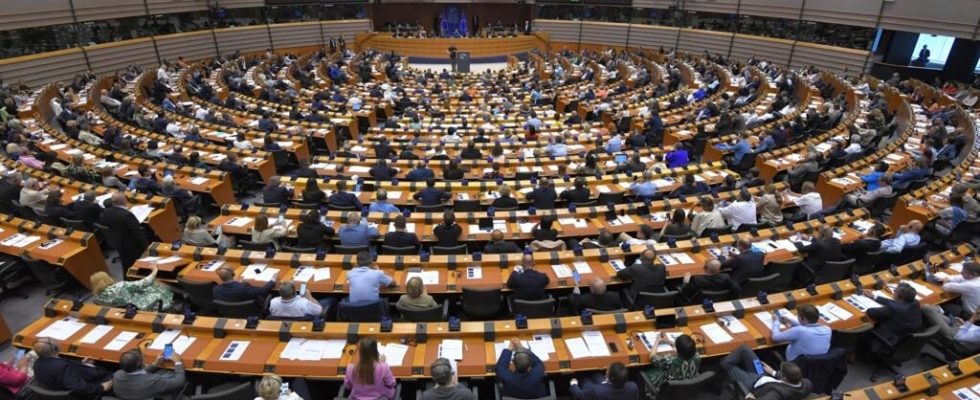According to a study by think tank ECFR (European Council for External Relations) published this Wednesday, January 24, the 2024 European Parliament elections will be marked by a significant shift to the right in many countries. Radical right-wing populist parties would gain votes and seats across the European Union, while center-left and green parties would lose votes and seats.
2 mins
The study of think tank ECFR points out that anti-European populists are expected to top the polls in nine member states: Austria, Belgium, Czech Republic, France, Hungary, Italy, Netherlands, Poland and Slovakia. They are expected to be in second or third place in nine other countries: Bulgaria, Estonia, Finland, Germany, Latvia, Portugal, Romania, Spain and Sweden.
This shift to the right should have important consequences for European policies. In particular on environmental issues, such as the implementation of the next phase of the Green Deal and the adoption and implementation of common policies aimed at achieving the European Union (EU) targets for net zero emissions .
In the current Parliament, the center-left coalition has tended to win on these issues, but often by very small margins. The significant shift to the right in the new parliament will mean that an “anti-climate” coalition is likely to dominate.
A tougher line on immigration
Despite a victory, these groups have very different compositions and do not always agree among themselves on immigration, supposed to be a point of convergence, or even Russia, on enlargement and support for Ukraine. When it comes to civil liberties, justice and home affairs, this could have major implications.
It is a setback for the Socialists and Democrats, for the centrist group Renew Europe – of which Emmanuel Macron’s Renaissance is a part – and a setback for the Greens. Identity and Democracy, the far-right group which includes, for example, the National Rally (RN) in France and Alternative for Germany (AfD) as well as the European Conservatives and Reformists (CRE, eurosceptics), and also bringing together the party Law and Justice (PiS) in Poland, Fratelli d’Italia and Vox in Spain will gain ground.
Impact on the national debate
While the national debates which will take place before the June 2024 elections will not have an impact on the composition of Member States’ governments, they will have an impact on the positions that heads of state or government will feel able to take in the months and years following the elections.
The main result of the elections in many Member States could be the success of anti-populist partiesestablishment. The graph below shows the change in vote shares between 2019 and 2024 for populist parties likely to win at least 6% of the vote in 2024.
Read alsoFar-rights, abstention and disinformation, the challenges of the 2024 European elections
